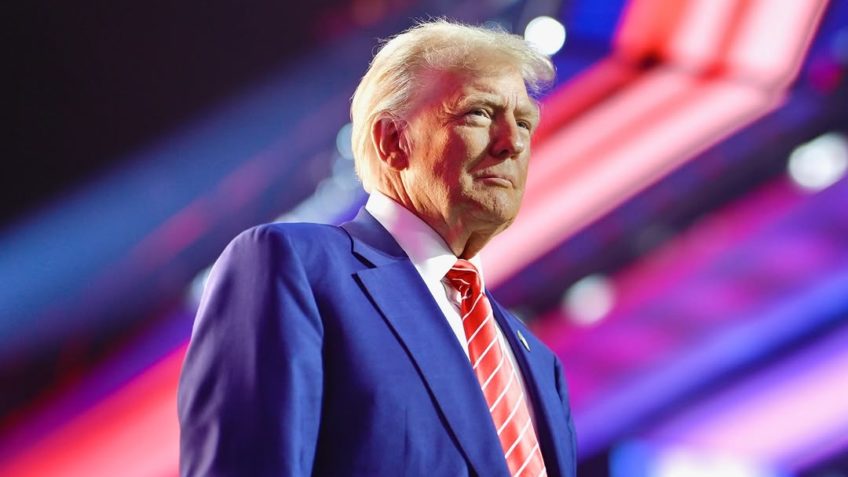Controversy Surrounding the Panama Canal: U.S. Claims and Panamanian Response
Date: [Insert Date]
By: [Insert Author Name]
The Panama Canal Authority has vehemently denied claims made by President-elect Donald Trump suggesting that the Panama Canal is now under Chinese control. In an interview with *The Wall Street Journal*, Ricaurte Vásquez Morales, the CEO of the Panama Canal, stated, “The allegations that China is managing the Canal are baseless. China plays no role whatsoever in our operations.”
Vásquez Morales emphasized the canal’s strict adherence to neutrality, saying, “We cannot discriminate in favor of or against any nation, be it Chinese, American, or others. Doing so would violate international law, the neutrality treaty, and lead to chaos.”
The governance of the Panama Canal has evolved significantly since the Torrijos-Carter Treaties of the late 1970s, which were pivotal in shaping its current status. These treaties, brokered by then-President Jimmy Carter, allowed the United States military to defend the canal’s neutrality while transitioning control to Panama by December 31, 1999. The agreements came at a time of heightened Cold War tensions and were seen as crucial to maintaining stability in the region.
Trump has been openly critical of the U.S. decision to transfer control of the Panama Canal to Panama. In a recent press briefing at Mar-a-Lago, when asked if he could rule out military or economic actions to reclaim control, he responded, “No, I can’t make that promise. The Panama Canal is crucial to our economic security. It was built for our military, and now it’s being operated by China. We gave it to Panama, not China, and they’ve misused what we gifted. This should never have happened.”
In a reflection on former President Carter, who recently lay in state at the U.S. Capitol, Trump remarked, “Carter was a good man—kind, very fine—but giving away the Panama Canal was, in my opinion, a major mistake. That decision hurt his legacy and contributed to his election loss more than the Iran hostage crisis.”
This is not the first time Panama has had to refute claims of Chinese dominance over the canal. Last month, Trump stirred controversy by posting on his TRUTH Social platform, asserting that “wonderful soldiers of China” were illegally operating the canal. The statement provoked a swift response from Panamanian President José Raúl Mulino, who labeled the accusation as “nonsense.” Mulino affirmed, “There isn’t a single Chinese soldier in the canal. The canal is Panamanian and will remain so. There’s no room for discussion on this matter.”
Trump’s remarks concerning the Panama Canal resonate with broader U.S. concerns regarding China’s expanding influence in global trade infrastructure. His mention of potentially reclaiming the canal reflects anxieties tied to Chinese investments in ports worldwide. U.S. Southern Command chief Gen. Laura J. Richardson recently testified before the House Armed Services Committee, drawing attention to the potential implications of these developments. She stated, “In Panama, PRC-controlled State-Owned Enterprises (SOEs) continue to bid on projects related to the canal—a critical chokepoint for global commerce.” Richardson underscored the significance of surveillance and control over such vital trade routes.
The Panama Canal remains vital not only for Panama but for global trade at large, with approximately 5% of the world’s commerce traversing its waters. Furthermore, around 40% of U.S. container traffic relies on this pivotal passage. While the canal’s operations are under Panamanian control, there are concerns about the influence of Chinese interests, specifically through Hong-Kong based Hutchison Ports PPC, which has managed key seaports at both entrances to the canal for decades.
These worries have been amplified in light of China’s tightening grip on Hong Kong and the implementation of security laws that may compel businesses to support state intelligence and military operations. The geopolitical implications remain profound as the U.S. navigates its policies to counter growing Chinese investments in critical infrastructure.
Although the Panama Canal continues to be operated by Panama, the discourse surrounding Trump’s statements highlights a deeper anxiety within the U.S. regarding China’s assertive role in global commerce. Whether Trump’s assertive stance on the canal will translate into tangible policy instruments remains uncertain. This debate encapsulates the evolving dynamics of international relations and trade, and its implications would certainly be felt in both Panama and the broader global arena.
Refuting Allegations of Chinese Control
The Historical Context of the Canal’s Governance
Trump’s Critique and Military Implications
Political Responses from Panama
Strategic Concerns Over Chinese Investments
The Panama Canal’s Role in Global Trade
Looking Ahead: Policy Implications and Future Actions
This HTML article contains structured headings and informative sections, reflecting a journalistic style while addressing the claims surrounding the Panama Canal and the involved parties’ responses.
